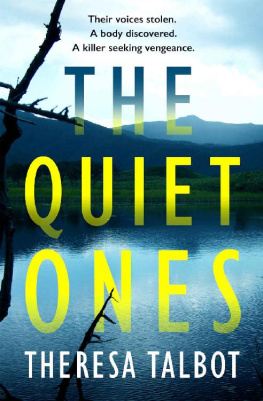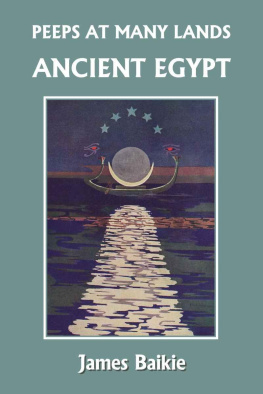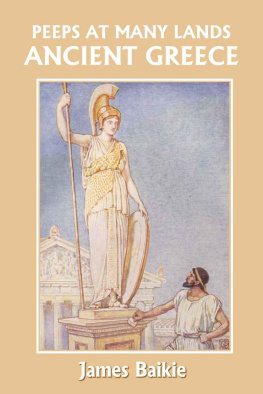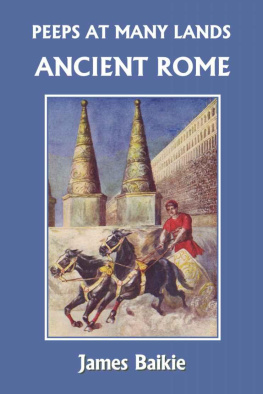R. Talbot Kelly - Peeps at Many Lands Egypt (Illustrated Edition)
Here you can read online R. Talbot Kelly - Peeps at Many Lands Egypt (Illustrated Edition) full text of the book (entire story) in english for free. Download pdf and epub, get meaning, cover and reviews about this ebook. year: 2010, publisher: Echo Library, genre: Romance novel. Description of the work, (preface) as well as reviews are available. Best literature library LitArk.com created for fans of good reading and offers a wide selection of genres:
Romance novel
Science fiction
Adventure
Detective
Science
History
Home and family
Prose
Art
Politics
Computer
Non-fiction
Religion
Business
Children
Humor
Choose a favorite category and find really read worthwhile books. Enjoy immersion in the world of imagination, feel the emotions of the characters or learn something new for yourself, make an fascinating discovery.
- Book:Peeps at Many Lands Egypt (Illustrated Edition)
- Author:
- Publisher:Echo Library
- Genre:
- Year:2010
- Rating:3 / 5
- Favourites:Add to favourites
- Your mark:
- 60
- 1
- 2
- 3
- 4
- 5
Peeps at Many Lands Egypt (Illustrated Edition): summary, description and annotation
We offer to read an annotation, description, summary or preface (depends on what the author of the book "Peeps at Many Lands Egypt (Illustrated Edition)" wrote himself). If you haven't found the necessary information about the book — write in the comments, we will try to find it.
Peeps at Many Lands Egypt (Illustrated Edition) — read online for free the complete book (whole text) full work
Below is the text of the book, divided by pages. System saving the place of the last page read, allows you to conveniently read the book "Peeps at Many Lands Egypt (Illustrated Edition)" online for free, without having to search again every time where you left off. Put a bookmark, and you can go to the page where you finished reading at any time.
Font size:
Interval:
Bookmark:

CHAPTER II. THE LAND
CHAPTER III. CAIROI
CHAPTER IV. CAIROII
CHAPTER V. THE NILEI
CHAPTER VI. THE NILEII
CHAPTER VII. THE NILEIII
CHAPTER VIII. THE MONUMENTS
CHAPTER IX. THE PEOPLE
CHAPTER X. THE DESERT This page formatted 2007 Blackmask Online.
This page formatted 2007 Blackmask Online.
http://www.blackmask.com
[Illustration: BY STILL WATERS.]
[Illustration: SEBIL OF THE MOSQUE OF THE SULTAN KELAUN.]
PEEPS AT MANY LANDS
EGYPT
BY
R. TALBOT KELLY
R.I., R.B.A., F.R.G.S.
COMMANDER OF THE MEDJIDIEH
WITH TWELVE FULL-PAGE ILLUSTRATIONS
IN COLOUR
BY
THE AUTHOR
LONDON
ADAM AND CHARLES BLACK
1916
* * * * *
LIST OF ILLUSTRATIONS
SEBIL OF THE MOSQUE OF THE SULTAN KELAUN frontispiece
AN IRRIGATED FIELD
AN ARAB CAF, CAIRO
A MOSQUE INTERIOR
A STREET IN CAIRO
A WATERING-PLACE
THE FIRST CATARACT FROM ELEPHANTINE ISLAND
THE PYRAMIDS OF GHIZEH FROM THE DESERT
THE COLOSSI OF THEBESMOONRISE
A NILE VILLAGE
DESERT ARABS
BY STILL WATERS on the cover
* * * * *
[Illustration: SKETCH-MAP OF EGYPT.]
* * * * *
EGYPT
CHAPTER 1. ITS ANTIQUITYEvery boy or girl who has read the history of Joseph must often have wondered what kind of a country Egypt might be, and tried to picture to themselves the scenes so vividly suggested in the Bible story.
It must have been a startling experience for the little shepherd boy, who, stolen from his home among the quiet hills of Canaan, so suddenly found himself an inmate of a palace, and, in his small way, a participator in the busy whirl of life of a royal city.
No contrast could possibly have been greater than between his simple pastoral life spent in tending the flocks upon the hillsides and the magnificence of the city of Pharaoh, and how strange a romance it is to think of the little slave boy eventually becoming the virtual ruler of the most wealthy and most highly cultured country in the world!
And then in course of time the very brothers who had so cruelly sold him into bondage were forced by famine to come to Joseph as suppliants for food, and, in their descendants, presently to become the meanest slaves in the land, persecuted and oppressed until their final deliverance by Moses.
How long ago it all seems when we read these old Bible stories! Yet, when 4,000 years ago necessity compelled Abraham, with Sarah his wife, to stay awhile in Egypt, they were lodged at Tanis, a royal city founded by one of a succession of kings which for 3,000 years before Abraham's day had governed the land, and modern discoveries have proved that even before that time there were other kings and an earlier civilization.
How interesting it is to know that to-day we may still find records of these early Bible times in the sculptured monuments which are scattered all over the land, and to know that in the hieroglyphic writings which adorn the walls of tombs or temples many of the events we there read about are narrated.
Many of the temples were built by the labour of the oppressed Israelites, others were standing long before Moses confounded their priests or besought Pharaoh to liberate his people. We may ourselves stand in courts where, perhaps, Joseph took part in some temple rite, while the huge canal called the Bahr Yusef (or river of Joseph), which he built 6,300 years ago, still supplies the province Fayoum with water.
Ancient Tanis also, from whose tower Abraham saw wonders in the field of Zoan, still exists in a heap of ruins, extensive enough to show how great a city it had been, and from its mounds the writer has often witnessed the strange mirage which excited the wonder of the patriarch.
Everywhere throughout the land are traces of the children of Israel, many of whose descendants still remain in the land of Goshen, and in every instance where fresh discovery has thrown light upon the subject the independent record of history found in hieroglyph or papyrus confirms the Bible narrative, so that we may be quite sure when we read these old stories that they are not merely legends, open to doubt, but are the true histories of people who actually lived.
As you will see from what I have told you, Egypt is perhaps the oldest country in the worldthe oldest, that is, in civilization. No one quite knows how old it is, and no record has been discovered to tell us.
All through the many thousands of years of its history Egypt has had a great influence upon other nations, and although the ancient Persians, Greeks, and Romans successively dominated it, these conquering races have each in turn disappeared, while Egypt goes on as ever, and its people remain.
Egypt has been described as the centre of the world, and if we look at the map we will see how true this is. Situated midway between Europe, Africa, and Asia in the old days of land caravans, most of the trade between these continents passed through her hands, while her ports on the Mediterranean controlled the sea trade of the Levant.
All this helped to make Egypt wealthy, and gave it great political importance, so that very early in the world's history it enjoyed a greater prosperity and a higher civilization than any of its neighbours. Learned men from all countries were drawn to it in search of fresh knowledge, for nowhere else were there such seats of learning as in the Nile cities, and it is acknowledged that the highly trained priesthood of the Pharaohs practised arts and sciences of which we in these days are ignorant, and have failed to discover.
In 30 B.C. the last of the Pharaohs disappeared, and for 400 years the Romans ruled in Egypt, many of their emperors restoring the ancient temples as well as building new ones; but all the Roman remains in Egypt are poor in comparison with the real Egyptian art, and, excepting for a few small temples, little now remains of their buildings but the heaps of rubbish which surround the magnificent monuments of Egypt's great period.
During the Roman occupation Christianity became the recognized religion of the country, and to-day the Copts (who are the real descendants of the ancient Egyptians) still preserve the primitive faith of those early times, and, with the Abyssinians, are perhaps the oldest Christian church now existing.
The greatest change in the history of Egypt, however, and the one that has left the most permanent effect upon it, was the Mohammedan invasion in A.D. 640, and I must tell you something about this, because to the great majority of people who visit Egypt the two great points of interest are its historical remains and the beautiful art of the Mohammedans. The times of the Pharaohs are in the past, and have the added interest of association with the Bible; this period of antiquity is a special study for the historian and the few who are able to decipher hieroglyphic writing, but the Mohammedan era, though commencing nearly 200 years before Egbert was crowned first King of England, continues to the present day, and the beautiful mosques, as their churches are called (many of which were built long before there were any churches in our own country), are still used by the Moslems.
Font size:
Interval:
Bookmark:
Similar books «Peeps at Many Lands Egypt (Illustrated Edition)»
Look at similar books to Peeps at Many Lands Egypt (Illustrated Edition). We have selected literature similar in name and meaning in the hope of providing readers with more options to find new, interesting, not yet read works.
Discussion, reviews of the book Peeps at Many Lands Egypt (Illustrated Edition) and just readers' own opinions. Leave your comments, write what you think about the work, its meaning or the main characters. Specify what exactly you liked and what you didn't like, and why you think so.






